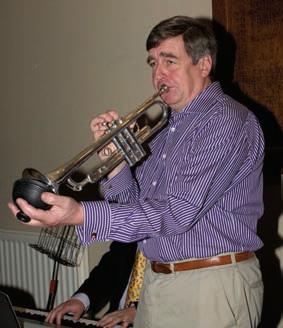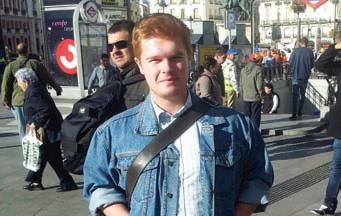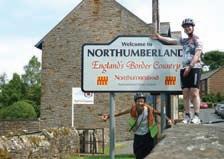
9 minute read
Find a Passion Bigger Than Yourself
from ONA 90
Find a Passion Bigger Than Yourself By Phillida Strachan (03-05)
The best piece of advice I remember receiving during my upper sixth year at RGS was from my History teacher Abigail Box (nee Heaton).
Advertisement
Iwas applying for university and debating whether to pursue History, which I loved, or a more tangible subject which I felt might give me more direct skills or a clear career path. Abigail encouraged me to pursue my passion, recognising that you work harder and with more enthusiasm when you love what you are doing. With this advice in mind, I decided to study History and pursue my long-held passion to work in the field of international development and humanitarian relief. As a result, the last eight years have taken me from Cambridge to the Solomon Islands, from Haiti to Zimbabwe, and from South Sudan to the Syria Response. I started out from university as the first intern in a small, not-for-profit organisation based in Cambridge called The Humanitarian Centre. The Centre has developed rapidly since 2008, but during my time it primarily provided networking, education and capacity-building opportunities for small international development non-governmental organisations (NGOs) based in and around Cambridge. I found myself becoming involved in a wide range of activities, from volunteer management to administering educational courses, from attending the Shelter Centre conference in Geneva to disaster relief and shelter management courses run by Engineers Without Borders. This background gave me a strong foundation in the landscape of humanitarian aid and, along with the experience I gained working in a domestic violence shelter in the Solomon Islands in 2007, enabled me to secure a place on World Vision’s international programmes graduate training scheme in 2009.
(Far right) Phillida Strachan visiting a child-friendly space set up by World Vision during the Haiti emergency response
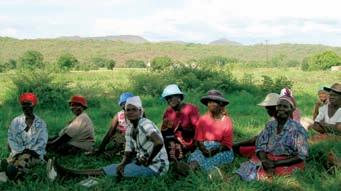

Conducting a focus group discussion with small-scale farmers in Zimbabwe A makeshift camp for internally displaced people in Haiti
Between 2009 and 2013 I spent four years working with World Vision and the International Rescue Committee all over the world. There are two experiences during that time which particularly stand out for me in confirming and deepening my passion to work in this field. The first began on the morning of 13 January, 2010. I was trapped in a car in the snow, attempting to make the journey to work when I received a phone call from my manager, who simply said, “There’s been an earthquake in Haiti, we need you in the office now. You are going to be seconded to the humanitarian emergencies team”.
This marked the beginning of my most significant experience in international aid. The Haiti earthquake was arguably the worst rapid onset disaster of the last four decades, in which the UN estimates over 250,000 people lost their lives and more than one million were displaced. It was into this context that I arrived in early March 2010, having spent one and a half months supporting the response from the UK. I had never worked in a humanitarian response overseas, let alone one on the scale of Haiti. As a program officer I was tasked with supporting World Vision’s water, sanitation and hygiene, cash-for-work and early recovery programmes. I was exposed to the Port-au-Prince sewage and waste disposal site, saw women cleaning latrines up to their knees in mud, witnessed the effects of heavy rain on makeshift shelters covered only by sheets, and saw whole hillsides of houses that had collapsed on top of each other. The experience of being a cog in the machine of the humanitarian response was a steep and humbling learning curve, and reaffirmed my commitment to work for the right of all people to live a life with dignity and opportunity.
Six months after I left Haiti I moved to Zimbabwe for a year, during which time the people of South Sudan went to the polls in January 2011 and exercised their right to vote for an independent nation. I arrived in South Sudan in October 2011, three months after the official declaration of independence on 9 July. I was privileged to live in this new country for its first two years, working first with World Vision and then with the International Rescue Committee. The great sense of optimism of South Sudanese people at the dawn of their future shaped the international community’s response, with significant partnership programmes between NGOs, the UN and the State, seeking to support the government in realising the aspirations of its people. South Sudan is an incredibly diverse country, with over 60 tribes and as many languages. During my time there I was able to visit five of the 10 States, and gain a small sense of the scale of nation-building ahead for the country. The unique opportunity that South Sudan has at this juncture to shape its laws, justice systems, government institutions, and how it tells its history, is both important and exciting. Participating in even a small part of the ongoing transformation of this country was a privilege which reaffirmed my passion for this work, as well as a greater understanding of the responsibility that comes with it.
Last year I returned to the UK to complete an MSc in Refugees and Forced Migration Studies at the University of Oxford. I hope to deepen my knowledge of these issues and understand how I can continue to contribute effectively to the field of humanitarian relief. I have been fortunate enough to receive funding through the University’s Clarendon Fund, which hosted its inaugural annual lecture on 2 December 2013. The keynote speaker was the Oxford-based economist Paul Collier, who is best known for his extensive work on development economics in Africa, and as author of The Bottom Billion. As a remarkably successful economist, academic and author, he sought to give advice to young students starting out in their careers. His first and most important criterion for success was “find a passion bigger than yourself”. Sitting there, eight years on from Abigail’s advice, I felt my experiences had come full circle, and I was reminded of the passion, commitment and enthusiasm which the RGS seeks to encourage in all its students.
A rural village in Northern Bahr-el-Ghazal State, South Sudan
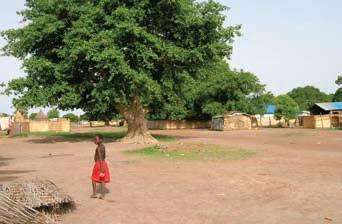
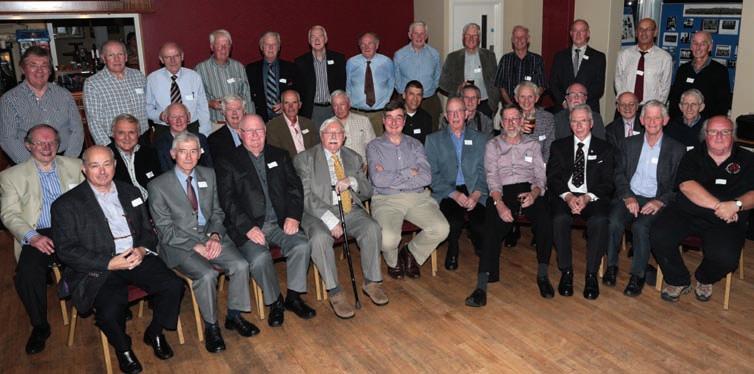
50th Reunion: group photo on the night at South Northumberland Cricket Club
ONA Dinner 2013 & 50th Reunion By David Westwood (95-02) and Sir Brian Briscoe (56-63)
David Westwood, ONA President and Sir Brian Briscoe, guest speaker at the annual ONA Dinner reflect on the Dinner and the weekend it began for ONs who left the School in 1963.
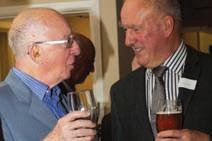
The Old Novocastrians’ Association (ONA) annual Dinner is held in October every year following the AGM. The format of the evening is a sherry reception held within the school’s Main Hall, where guests are entertained by some members of the school band. The AGM takes place shortly after in what was once the Headmaster’s Office having been relocated from the Plender Library. Following the AGM, the President provides an update on the state of the Association before guests are ushered through to the Dining Hall, where Barrie Bulch and his team deliver an exceptional menu. Following dinner there are speeches by the Headmaster and a guest speaker, who this year was Sir Brian Briscoe.
This year’s annual Dinner at school was a great success with nearly 120 ONs present, ranging from 1932 to last summer’s leavers, but it was also notable for a large attendance of ONs who left the school in 1963. Fifty years ago there were many momentous events, but none more so (for them at least) than the class of 56-63 moving on from school and for many, moving from the North East.
Some of this group have met every year to refresh arguments about the relative merits of local football teams, the shifting political scene, and occasionally to demonstrate that, however eminent their sporting achievements, none of them can play snooker. These events in the past 30 years have been in London – most accessible for a group largely settled in the Home Counties.
Two of the group, Colin Ions (56-63) and Brian Briscoe, decided over a year ago that they would try to set up a reunion weekend in Newcastle to celebrate ‘50 years on’ and see how many of the year group could be persuaded to meet over the weekend. Email addresses were obtained, an outline of the weekend transmitted to those who could be found and a programme developed.
The weekend began on Friday evening with the ONA Dinner, involved a visit to the school on Saturday morning with complimentary pie and peas, an afternoon at Sutherland Park for a Novos RFC v Gosforth Cup match (and buffet), and an evening event at South Northumberland Cricket Club. On Sunday morning Lawrence Bryson (56-63) led a fascinating walking tour of historic Newcastle. It was possible to take all the programme or parts of it, and one small group was able to take in the Newcastle v Liverpool game at St James’ Park and a well fought draw despite having only 10 men for more than half the game.
The Saturday evening buffet and drinks was attended by 35 of the year group, the Headmaster, Bernard Trafford, and two masters from the era –John Douglas and Bill Elliott. ONs came from South Africa, Germany and Canada, and from all parts of the UK, and Tyneside. A collection of team photographs and some iconic 60s artwork from the school Art Department, thanks to Art teacher, Kirsty Nowickidecorated the South Northumberlandvenue. Unrelenting pressure from Colin Ions persuaded Bernard ‘Kenny Ball’ Trafford to play a trumpet solo of a 60s classic. Those present wondered if any previous Head would have been so brave! Christine Pipes, Technology teacher and school photographer, kindly gave up her early Saturday evening to commemorate the event and there are plans to produce a brochure to share with those attending Saturday night and some who couldn’t be there. Our thanks to Kirsty, Christine and Bernard.
The weekend was deliberately informal, and any anxiety that it might be ‘uncomfortable’ was immediately dispelled. Whatever else we may be, ex-RGS people are not stuck up or precious and even Gateshead people were not treated with condescension (much), now that they have their own bridge. The humour, memories, matches we won and lost, were all rehearsed and, judging by the feedback, the event was greatly enjoyed and appreciated.
We were keen to report this event to encourage others to think about similar opportunities for their year groups. Brian and Colin were greatly supported by Jane Medcalf in the ONA office (who, among many other things, collected the contributions for Saturday night’s event) and it would be right also to acknowledge the enormous help from two of the year group still based in the North East, Mike Barlow (5364)and Steve Lawson (53-64). The Headmaster did more than it was right to ask, but the wider message after the thanks have been given, is that there is now a framework for organising such reunion weekends. So why not give it a go?
You will be surprised how many of your contemporaries would be pleased if you did.
Photographs by Christine Pipes
Bill Elliott, former Master
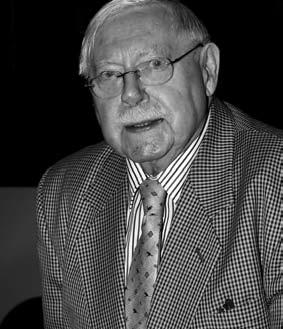
Headmaster Bernard ‘Kenny Ball’ Trafford
